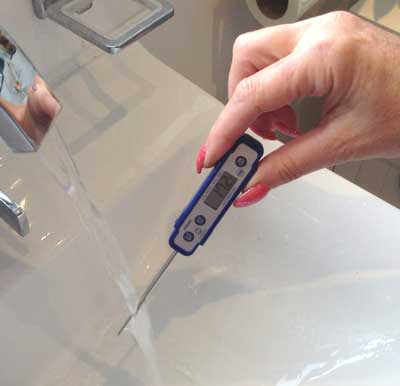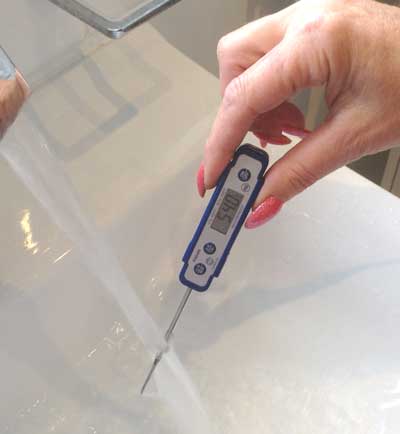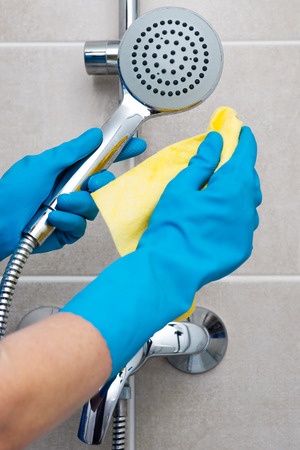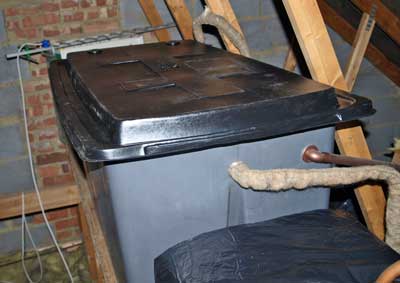
Welcome to the Landlord Law Members Form.
We have negoitiated a 50% discount for our members. Please use this form to produce your Legionella Risk Assessment for £9.95
A Legionella Risk Assessment is a legal requirement for all domestic properties which are rented to a tenant.
The purpose of a legionella risk assessment for your rental properties is to ensure that you have taken sufficient note of the possibility of legionella in your water system and to give practical advice to your tenants.
Most of the information you need to provide to your tenant is already contained in our prepopulated legionella risk assessment template. However there are a few practical steps you need to take to ensure that you are providing a compliant and accurate assessment.
This short guide will tell you what information you need in order to complete the process.
1. The first thing you need to do is to ensure the running temparature of the cold water from all taps in the property is under 20c. If your water is fed directly to your taps/showers from the mains supply and not via a cold water storage tank then this should be perfectly acceptable. The water which is fed direct from the mains is non adjustable and should be supplied at an acceptable temperature.
If your central heating boiler is a combi boiler then is it more than likely that your cold water is fed to your taps and showers direct from the mains and not from a cold water storage tank in the loft as these are generally removed/disconnected when a combi boiler is installed.
2. You should ensure that the hot water is running above 50c. Again if you have a combi boiler or electric immersion heater this would normally be set to deliver at a temperature above 50c.
(if you are unsure about the temperatures you can check them with a basic digital thermometer which can be purchased from your local chemist from as little as £4. Run the water at the cold tap for approx 30 seconds and then measure and make note of the temperature. Then do the same for the hot water taps. The cold water reading should be below 20c and the hot reading should be above 50c to satisfy the requirements. Only in very rare cases would your readings be outside this range.


Check to see if the water is running freely and that all taps are in good clean condition. If there is a build up of dirt, sediment or limescale etc you should advise your tenant to clean the taps thoroughly and regularly. (this advice is contained in the report you will recieve).
3. Shower heads should always be kept clean and free running. You should advise your tenant to clean shower heads thoroughly and regularly. (this advice is also contained in the assessment).

Shower hoses can store stagnant water when not used for a period of time, this can allow legionella to multiply in the right temperature conditions. This water is sprayed directly at the user so we have to make sure that showers are cleaned and used regularly to avoid stagnant water build up in the flexible hose. This advice is included in the report for the tenant.
4. Water storage tanks. Does the property have a cold water tank in the loft/airing cupboard? If you have a non combi boiler you will have a cold water tank.

When debris falls into the tank legionella will feed on it and multiply in the right temperature conditions. It would be good practice to ensure there is a lid on the tank to stop debris entering the water system. If there is limescale or debris in the tank it should be cleaned.
5. If the property has any spa baths/jacuzzis they should be cleaned on a regluar basis. They create tiny particles of water that can be breathed in and potentially can cause legionella in certain circumstances. There is a recent case of 3 deaths due to a dirty jacuzzi. The owner was fined £200,000.
6. 'Dead Legs' These are runs of pipework that are unused and blanked off but are still connected to the main water system (an old unused washing machine connection is an example). This pipework can hold stagnant water which if held at a temperature of between 20c and 45c can become a risk of legionella. If the pipework is disturbed and the water sprays into the face of a tenant it could cause serious illness. Take note if there are dead legs present in the property and if possible have them removed.
The rest of the required information is prepopulated to ensure you produce an acceptable legionella risk assessment.
You can now proceed to do your own assessment.

